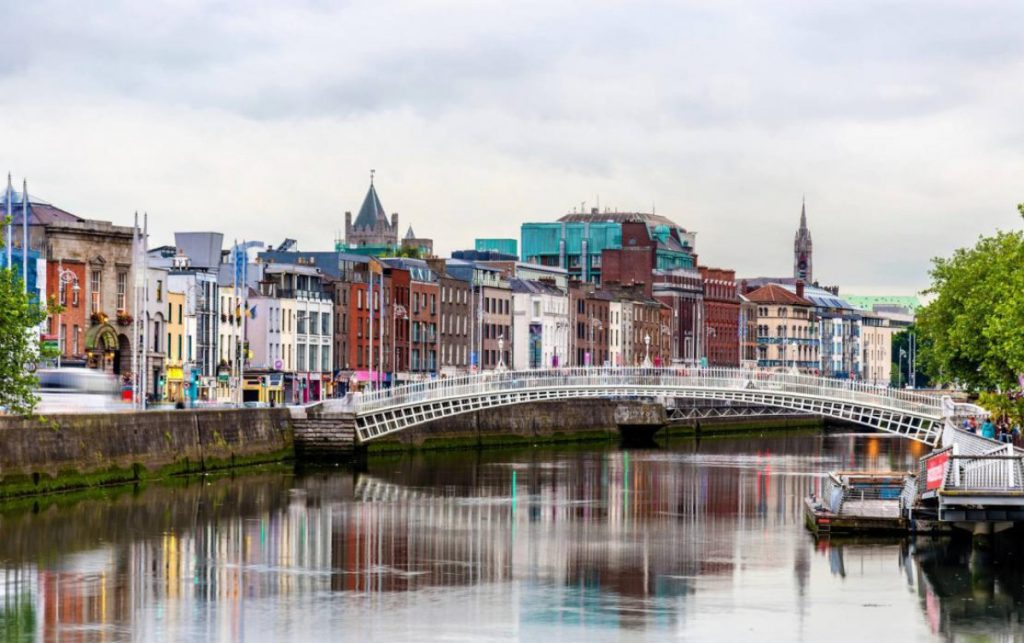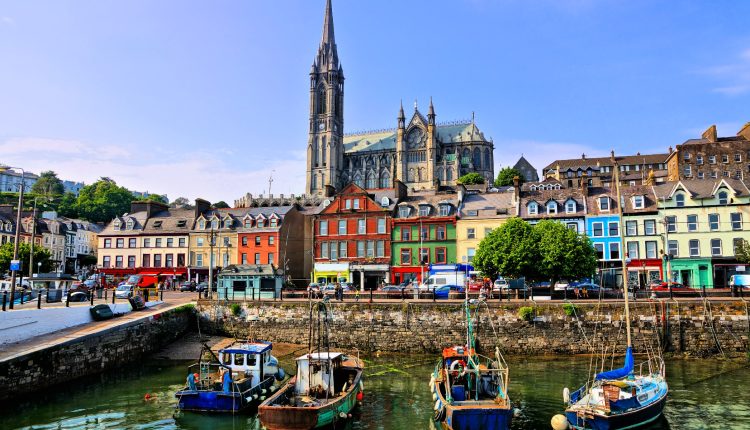
The Republic of Ireland, located in northwestern Europe, is known for its high quality of life, economic prosperity, and a welcoming environment that attracts people from all over the world. For those considering moving to this country, there are several types of residence permits available. In this comprehensive guide, you’ll find all the information you need about the Irish residence permit, how to apply, the required documents, and the details of the process.
Table of Contents
- Introduction to Ireland
- What is the Irish Residence Permit?
- Types of Residence Permits
- Application Process for an Irish Residence Permit
- Documents Required for Residence Permit Applications
- Immigrant Investor Programme (IIP)
- Renewal Process for Residence Permits
- Pathway to Irish Citizenship
- Living in Ireland: Opportunities and Lifestyle
- Conclusion
Introduction to Ireland
Ireland, whose capital and largest city is Dublin, lies in northwestern Europe and is known for its breathtaking landscapes, vibrant cultural heritage, and modern economy. The country is home to some of the world’s largest tech companies, including Google, Meta, and Twitter, which have chosen Ireland as their European headquarters due to its favorable tax policies and tech-friendly legal framework. These factors make Ireland a significant hub for professionals seeking career advancement.
Ireland’s official languages are English and Irish (Gaelic), but English is the most widely spoken, making it convenient for expats from across the globe. The country is also renowned for its excellent education system, with prestigious institutions like Trinity College Dublin, University College Dublin (UCD), and Dublin City University (DCU), which collectively attract thousands of international students every year. The combination of career and educational opportunities has led to an increasing number of people choosing to settle in Ireland.
What is the Irish Residence Permit?
The Irish Residence Permit (IRP) is an official document that allows non-European Economic Area (EEA) nationals to live, work, or study in Ireland for longer than 90 days. This permit is essential for anyone from outside the European Union or Switzerland who wants to stay in Ireland for an extended period. Residence permits can be obtained for various reasons, including education, work, internships, investment, or family reunification.
Types of Residence Permits
There are several categories of residence permits in Ireland, tailored to different needs. These include:
- Student Residence Permit: For those coming to Ireland to pursue academic studies, including undergraduate, postgraduate, and doctoral programs.
- Work Permit and Employment Permit: For individuals who have secured a job offer and are moving to Ireland for employment.
- Family Reunification Permit: Allows family members of Irish residents or citizens to join them in Ireland.
- Investor and Entrepreneur Residence Permit: For individuals investing in the Irish economy through the Immigrant Investor Programme (IIP).
Application Process for an Irish Residence Permit
To obtain an Irish Residence Permit, applicants must first secure the appropriate visa for their intended purpose of stay. Once the visa is approved and the applicant enters Ireland, they must register with the local immigration office to formalize their residence status and obtain an IRP card.
Step-by-Step Application Process
- Obtain the Appropriate Visa: Depending on the reason for your stay (e.g., study, work, family reunification), you will need to apply for the corresponding visa. The visa application should be submitted through Ireland’s visa processing system.
- Register with the Local Immigration Office: Upon arrival in Ireland, individuals must visit a local immigration office within 90 days to register their presence in the country. Failure to register can lead to legal issues and may affect one’s ability to remain in Ireland.
- Complete the Registration: Once the registration process is completed, applicants will receive an Irish Residence Permit (IRP) card within a few weeks by post.
IRP Card Overview
The IRP card is a credit-card-sized plastic card that serves as proof of your right to reside in Ireland legally. It contains key information, including:
- Your name, date of birth, and registration number
- The type of residence permit issued, including the specific “Stamp” number and validity duration
- A photograph, fingerprint, and personal information stored on a microchip
It’s important to note that while the IRP card confirms your legal residency in Ireland, it does not grant automatic travel rights within the Schengen Area. Before traveling to other European countries, you should check the visa requirements specific to those countries.
Documents Required for Residence Permit Applications
The documentation needed to apply for an Irish Residence Permit varies depending on the purpose of your stay. Below are the main categories and their specific requirements:
- Student Residence Permit
- Valid passport
- Letter of acceptance from an educational institution (undergraduate, postgraduate, or doctoral)
- Proof of payment for tuition fees (full payment if below €6,000; minimum of €6,000 if the amount exceeds this)
- Student protection plan
- Health insurance coverage
- Proof of sufficient financial resources (€3,000 minimum or proof of €500 per month for the duration of your stay)
- Work Permit Residence Permit
- Valid passport
- Employment permit issued by the Department of Business, Enterprise, and Innovation or approval from the Department of Justice
- Proof of payment of administrative registration fees
- Family Reunification Residence Permit
- Valid passport
- Passport of the family member in Ireland (spouse or partner)
- Marriage or civil partnership certificate
- Proof of joint address
- Letter of permission issued by the Department of Justice
Immigrant Investor Programme (IIP)
If you’re considering investing in Ireland as a means to obtain residency, the Immigrant Investor Programme (IIP) is an ideal route. This program is designed for high-net-worth individuals from outside the EEA who are willing to invest in Ireland’s economy. Successful applicants and their families are granted Irish residency in return for their financial commitment.
Key Requirements for IIP
- A minimum investment of €2 million in an approved investment fund or Irish enterprise.
- The investment must be held for at least three years.
- Alternatively, a minimum donation of €500,000 to a charitable project in Ireland can qualify an investor for residency.
Investors initially receive a two-year residence permit, which can then be renewed for three more years, provided all requirements are met.
Renewal Process for Residence Permits
The validity period of an IRP card depends on the type of residence permit issued. For example, residence permits for language courses, undergraduate or postgraduate studies, or doctoral research usually last between 8 to 12 months and can be renewed as long as conditions are met. Similarly, work permit holders may renew their IRP based on the length of their employment contract.
Renewal applications must be submitted well before the expiration date of the current permit to avoid any lapse in residency status. The renewal process generally involves visiting the local immigration office, submitting the required documents, and paying the renewal fee.
Pathway to Irish Citizenship
For those looking to make Ireland their permanent home, applying for Irish citizenship is the final step. To be eligible, applicants must have lived in Ireland for at least eight years, including continuous residence for the 365 days immediately preceding the application. Applicants must also demonstrate sufficient knowledge of Irish culture and society, typically through a citizenship test.
Citizenship offers a range of benefits, including the right to vote, freedom to work or study in any EU country, and enhanced travel opportunities.
Living in Ireland: Opportunities and Lifestyle
Living in Ireland offers a wealth of opportunities, from its thriving economy to its excellent educational institutions. Ireland is known for its high standard of living, friendly locals, and a rich cultural landscape that includes music, festivals, and historic landmarks. For those considering a move, it’s essential to understand the opportunities that Ireland presents, from career advancement to the chance to experience one of the most vibrant cultures in Europe.
Education and Employment Opportunities
Ireland is a popular destination for international students, thanks to its world-class universities. Graduates often find employment in fields like technology, finance, and pharmaceuticals, as these industries are particularly robust in Ireland. The country also has a friendly startup environment, making it a hub for aspiring entrepreneurs.
For professionals, the presence of multinational companies, especially in the tech and pharmaceutical sectors, means plenty of opportunities to build a career. The Irish government also provides pathways for skilled workers through employment permits, which makes it an attractive option for those seeking long-term career prospects.
Conclusion
Ireland presents a wealth of opportunities for individuals looking to live, study, or work in a vibrant and economically prosperous environment. This guide provides a comprehensive overview of the types of residence permits available, the application process, required documents, and additional options for investors. By following the steps outlined, you’ll be well-prepared to embark on a new life in Ireland.
Remember, moving to Ireland is not just about relocating to a new country; it’s also about embracing a unique cultural experience and building a promising future. Start your journey today and take the first step toward living the life you’ve imagined in Ireland.

